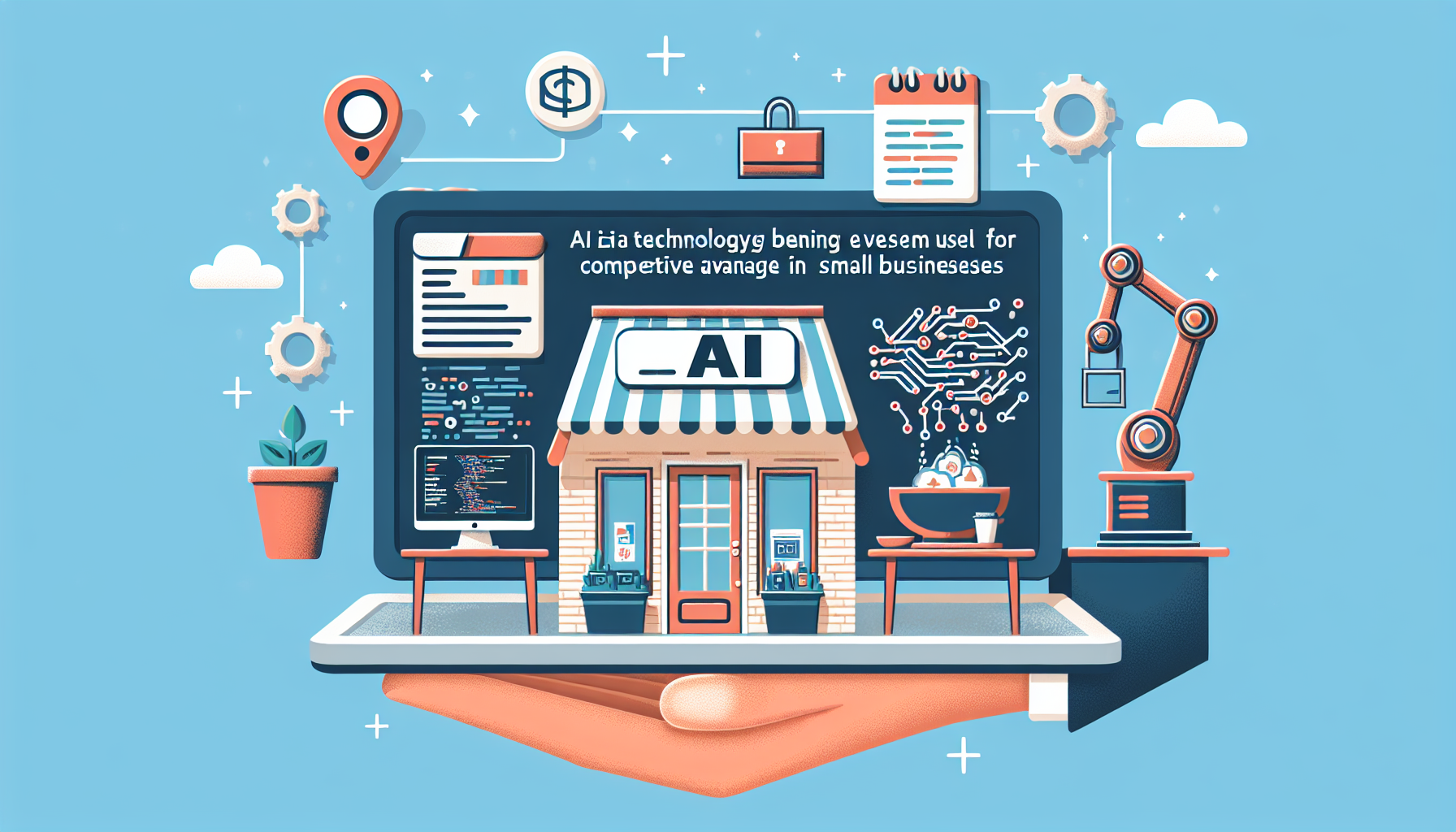Understanding AI in Small Business
Artificial Intelligence (AI) has transformed the landscape of business operations across various sectors. For small businesses, leveraging AI technology isn’t just an option; it’s becoming vital for survival and growth. By integrating AI into daily operations, small enterprises can improve productivity, streamline processes, enhance customer engagement, and ultimately gain a competitive edge.
Types of AI Technologies for Small Businesses
-
Machine Learning (ML): This form of AI uses algorithms to parse data, learn from it, and make informed decisions. Small businesses can utilize ML for forecasting sales, managing inventory, and enhancing customer relationship management (CRM) systems.
-
Natural Language Processing (NLP): This technology helps in understanding and generating human language, making it invaluable for customer service. Chatbots and virtual assistants, powered by NLP, can handle customer queries, provide information, and improve user experience.
-
Predictive Analytics: By analyzing historical data and trends, predictive analytics helps in anticipating future outcomes. Small businesses can use this to understand customer behavior, optimize marketing campaigns, and refine their product offerings.
-
Computer Vision: This technology enables machines to interpret and make decisions based on visual data. Industries like retail can use computer vision for inventory management and enhancing the customer shopping experience.
-
Robotic Process Automation (RPA): RPA automates repetitive and routine tasks, allowing small businesses to focus on more strategic initiatives. For example, automated invoicing and data entry can save time and reduce human error.
Enhancing Customer Experience with AI
Customer experience is a crucial differentiator for small businesses. Implementing AI-driven solutions can significantly enhance how customers interact with the brand.
-
Personalization: AI algorithms analyze customer data to deliver personalized recommendations. For example, e-commerce platforms can suggest products based on previous purchases, increasing conversion rates.
-
Chatbots and Virtual Assistants: Deploying chatbots on websites can provide instant assistance, addressing common queries and guiding customers through purchase processes. This immediate response time boosts customer satisfaction and retention.
-
Feedback Analysis: AI can analyze customer feedback, reviews, and social media interactions. Sentiment analysis tools evaluate customer opinions to inform product improvements and marketing strategies.
Streamlining Operations with AI
Operational efficiency is essential for small business profitability. AI tools can optimize various aspects of business operations.
-
Inventory Management: AI helps in predicting stock levels based on historical sales data and trends, minimizing overstock or stockout situations. Automated alerts for reordering enable seamless inventory management.
-
Accounting Automation: AI-driven accounting software can automate invoicing, expense tracking, and compliance management. This reduces administrative burdens and minimizes the risk of accounting errors.
-
Supply Chain Optimization: By using AI for supply chain management, small businesses can predict demand fluctuations and enhance logistics efficiency. AI can identify the shortest delivery routes, thereby saving time and costs.
Enhancing Marketing Strategies Using AI
AI has revolutionized marketing strategies through data-driven insights and automation.
-
Targeted Advertising: AI tools can analyze customer data to segment audiences effectively. This allows businesses to create targeted advertising campaigns that yield a higher ROI.
-
Content Creation: Natural Language Generation (NLG) technology can assist in generating blog posts, social media updates, and email newsletters, helping maintain an active online presence with minimal effort.
-
A/B Testing: AI can optimize A/B testing by rapidly analyzing which versions of websites, ads, or emails yield better results. This can lead to faster iteration and improved conversion rates.
Cost Reduction through AI Implementation
Adopting AI technologies can lead to significant cost savings for small businesses.
-
Reduced Labor Costs: Automation of routine tasks reduces the need for additional staff, allowing businesses to keep labor costs in check while reallocating human resources to value-added tasks.
-
Minimized Operational Errors: AI systems reduce the likelihood of human mistakes in areas like data entry, shipping, and customer communications, leading to fewer costly errors and customer dissatisfaction.
-
Energy Efficiency: AI optimizes energy consumption patterns, which is particularly beneficial for small businesses operating physical locations. Smart thermostats and lighting systems adjust based on occupancy, leading to lower utility bills.
Challenges and Considerations in AI Adoption
While the benefits of AI are substantial, small businesses must navigate several challenges for successful implementation.
-
Initial Investment: High upfront costs can deter small businesses. However, the long-term ROI often justifies the investment. Exploring tiered solutions or cloud-based AI services can mitigate costs.
-
Data Management: Effective AI systems rely on high-quality data. Small businesses must develop robust data management practices to ensure accurate and relevant data feeds.
-
Need for Training: Employees may require training to effectively use AI tools. Investing in training programs fosters a culture of continuous improvement while ensuring teams are equipped to leverage new technologies.
-
Cybersecurity Risks: As AI applications increase, so do cybersecurity vulnerabilities. Small businesses must invest in cybersecurity measures to protect sensitive customer data and ensure compliance with regulations.
Conclusion
In the competitive landscape of today’s business world, small enterprises that leverage AI technologies position themselves advantageously. By focusing on enhancing customer experience, streamlining operations, optimizing marketing, and reducing costs, small businesses can harness the power of AI to not only survive but thrive. With proper planning and the right tools, AI offers an unprecedented opportunity for growth and innovation, paving the way for a successful future.


